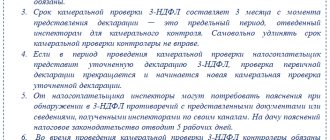Marina Shmeleva
Note to businessman
715
For businessmen, it is essential to choose an arbitration or arbitration court to submit an application and resolve the conflict that has arisen. The presence of such bodies is necessary, since entrepreneurship involves a large number of controversial situations. They can be of different nature. It is the circumstances of the conflict that make it possible to determine the grounds for applying to an arbitration court or arbitration court to resolve the dispute.
Arbitration or arbitration court - jurisdiction of cases to the arbitration court
The arbitration court is an officially functioning authorized body of state power that administers justice in the field of economic activity, in particular entrepreneurship with the participation of individual entrepreneurs, legal entities, supervisory services and inspections.
The main legal act regulating the work of an arbitration judge, in particular the resolution of economic conflicts, is the Arbitration Procedure Code of the Russian Federation. At the same time, this law determines that in exceptional cases the competence of the body in question can be expanded, that is, proceedings in a different category of cases are allowed.
Parties to arbitration disputes may be organizations (domestic, foreign and international), private entrepreneurs, authorities, as well as citizens, if they were involved as third parties and did not state their own claims.
In accordance with Art. 27 of the Arbitration Procedure Code of the Russian Federation defines a list of disputes that fall under the competence of arbitration courts. These include the following types of disagreements:
- disputes arising in bankruptcy cases, that is, declaring a legal entity (entrepreneur) insolvent;
- corporate disputes arising in connection with the creation, management and implementation of the organization’s activities;
- conflicts related to refusal or evasion of state registration on the part of both legal entities and entrepreneurs, and authorized bodies;
- disputes arising in connection with the exercise of rights to shares and other securities, in particular related to the activities of depositories;
- conflicts, the participants of which are state corporations, public law companies, on issues of management, implementation of activities and exercise of powers of the relevant bodies;
- disputes regarding the protection of intellectual property, if their participants are legal entities and entrepreneurs exercising powers to manage copyright and related rights;
- conflicts related to the need to protect business reputation in the field of economic activity.
This list is not exhaustive. Disputes may concern other issues if they arise from their economic activities and involve the participation of only business entities.
If you need the help of a qualified arbitration lawyer, please contact our law firm. You can get a consultation and preliminary assessment of your case for free:
To get a consultation
Practice knows cases when several claims arise from entrepreneurship and are considered within the framework of one dispute. However, they may fall within the competence of different courts.
If such a situation arises, the case is referred to a court of general jurisdiction for resolution, even if organizations and individual entrepreneurs are involved in the conflict.
Speaking about whether an arbitration court or an arbitration court should be chosen, you need to understand that these are not alternative options for resolving conflicts.
In some cases, by decision of the first body, disputes are referred to the second. In addition, there may be situations where the arbitration award of the arbitration tribunal is enforced. That is, the organs are connected and different from each other at the same time.
What disputes does the arbitration court consider?
According to Art. 27 of the Arbitration Procedure Code, the AS examines controversial legal relations that are in the area of entrepreneurial activity. There is a list of cases that are transferred to the RF AS:
- bankruptcy of the agro-industrial complex;
- corporate disputes;
- cases in which the refusal of state registration by authorized bodies is considered;
- disputes arising from the work of depositories when taking into account the rights of citizens to securities and shares;
- controversial cases concerning the work of corporations, companies, both public and private;
- cases concerning the procedure for reorganizing legal entities and various stages of this process;
- violations in the field of intellectual rights protection;
- disputes involving the process of protecting the company’s business reputation in the process of work;
- other matters arising in the course of the economic activity of the legal entity.
Arbitration or arbitration court - the competence of arbitration courts
The arbitration court is a single arbitrator or their panel, who are appointed by the parties or the arbitration authority and consider disputes arising from the circumstances of certain civil relations.
Legal regulation of the work of an arbitrator is carried out in Russia on the basis of the Code of Civil Procedure of the Russian Federation. In exceptional cases, arbitration applies the Federal Law “On Arbitration Courts in the Russian Federation” if the case was started and not completed before December 2015.
According to Art. 22.1 of the Code of Civil Procedure of the Russian Federation, a commercial arbitration court considers any disputes if they are related to civil legal relations. This order is determined by the parties to the conflict. This is based on the arbitration agreement to the arbitration court. Only a direct statement of the law can change this rule.
The Code of Civil Procedure of the Russian Federation also defines a list of conflicts that cannot be considered by arbitration courts, even if the parties have signed an arbitration agreement. These include the following:
- disputes involving mixed claims within the jurisdiction of arbitration and courts of general jurisdiction (Article 22 of the Code of Civil Procedure of the Russian Federation);
- family disputes, issues of guardianship, trusteeship, with the exception of cases of division of property, that is, situations not related to the actual economic activity being carried out;
- labor disputes;
- conflicts related to the determination of heirs and their rights (even if we are talking about securities of joint-stock companies);
- issues of property privatization in the Russian Federation.
Thus, arbitration law does not provide for significant restrictions for business entities that decide to apply to an arbitration court.
I am the founder of the legal company, Marina Shmeleva, and have the status of an arbitrator. You can contact me to resolve your issue:
Contact the judge
By contacting my company, you receive a quick resolution of the case by an arbitrator and assistance from qualified lawyers from my team. When resolving cases, I am guided by the Law and do not take sides for money. Please take this into account.
For an arbitration agreement to be valid, a date must be set for its conclusion. In accordance with the latest amendments adopted on the basis of Federal Law No. 409-FZ in December 2015, cases are referred to arbitration, but only if the parties agreed on this after February 1, 2021. Agreements concluded before the specified date shall be considered unfulfilled.
Thus, in order to determine whether a dispute falls within the competence of the arbitration court, it is necessary to establish three criteria: the presence of an arbitration agreement, the absence of a decision on a specific dispute by a state court, the nature of the requirements, which should not imply the exclusive competence of another judicial body.
Peculiarities of the proceedings in the arbitration court
1. Consideration of the case 2. Conditions 3. Novella
The case must be considered by the arbitration court of first instance within a period not exceeding three months from the date of receipt of the application by the arbitration court , including the period for preparing the case for trial and for making a decision on the case, unless otherwise established by this Code (Part 1 of Art. 152 of the Arbitration Procedure Code of the Russian Federation).
This period may be extended on the basis of a reasoned statement from the judge hearing the case by the chairman of the arbitration court up to six months due to the particular complexity of the case, with a significant number of participants in the arbitration process (Part 2 of Article 152 of the Arbitration Procedure Code of the Russian Federation).
The period for which the proceedings in the case were suspended or the trial was postponed in cases provided for by this Code is not included in the three-month period for consideration of the case but is taken into account when determining a reasonable period of legal proceedings (Part 3 of Article 152 of the Arbitration Procedure Code of the Russian Federation).
For certain categories of cases, the law allows for the possibility of establishing shortened deadlines, the beginning of which is usually indicated by the moment the application is received by the arbitration court.
The Arbitration Procedure Code of the Russian Federation provides for a special procedure for forming the composition of the arbitration court (Article 18 of the Arbitration Procedure Code of the Russian Federation). Moreover, from 01.11.2010. Federal Law dated July 27, 2010 Significant changes have been made to this standard.
1. The composition of the court for consideration of a particular case, including with the participation of arbitration assessors, is formed taking into account the workload and specialization of judges in a manner that excludes influence on its formation by persons interested in the outcome of the trial, including using an automated information system.
2. A case, the consideration of which was initiated by one judge or court panel, must be considered by the same judge or court panel.
3. Replacement of a judge, arbitration assessor or one of the judges, arbitration assessors is possible in the following cases:
- self-recusal or challenge of a judge or arbitration assessor declared and satisfied in the manner established by this Code;
- long absence of a judge or arbitration assessor due to illness, vacation, study, or being on a business trip.
4. A judge or arbitration assessor is also replaced in cases of termination or suspension of their powers on the grounds established by federal law.
5. If a judge or arbitration assessor is replaced during the consideration of a case, the trial must be carried out from the very beginning. The performance of procedural actions in urgent cases, including the acceptance of a statement of claim or statement and the initiation of proceedings in the case, the consideration of an application for securing a claim, the postponement of a trial, by one judge instead of another judge in the order of interchangeability does not constitute a replacement of a judge.
Clear regulation of the presentation of a dissenting opinion (Part 2 of Article 20 of the Arbitration Procedure Code of the Russian Federation - as of November 1, 2010, it is stated in a different wording).
Consideration of the case in separate sessions of the arbitration court (Article 160 of the Arbitration Procedure Code of the Russian Federation) (novel).
This procedural institution is designed to optimize the work of the arbitration court of first instance, to free the court and participants in the process from unnecessary activities in the event that the grounds for liability are not established.
Conditions:
1. If one application combines a requirement to establish the grounds for the defendant’s liability and a related requirement to apply liability measures (for example, in a claim for compensation for harm)
2. The parties agree to consider the claims in separate court sessions. Such consent must be expressed by both parties and expressed in writing or recorded in the minutes of the court hearing.
Consideration of a case in separate court sessions is the right of the arbitration court. If the arbitration court does not see sufficient grounds for holding separate hearings, then even if there are relevant requests from the parties, the case is considered in the usual manner.
It is necessary to distinguish the consideration of a case in separate sessions from the separation of several claims (Part 3 of Article 130 of the Arbitration Procedure Code of the Russian Federation). In the latter case, the separated claims are separated into separate proceedings, while in separate meetings, several claims continue to be considered within the framework of one proceeding.
A ruling is made on the consideration of the case in separate court sessions, which is not subject to appeal, since it does not interfere with the progress of the case.
The first is a court hearing in which the existence of grounds for liability is established. If they are absent, the issue of applying liability measures is not considered, so there is no need for a second court hearing. The result of the consideration of the case is formalized by a court decision.
If the grounds for liability are established, the second claim is considered immediately at the first court hearing or after a break, the period of which should not exceed 5 days, about which a corresponding protocol ruling is made. Based on the results of the first court hearing, an interim decision is made.
During the break, the parties can reach an agreement or resolve the dispute regarding the requirements for the application of liability measures, then the second court hearing is not held and the proceedings in the case regarding the requirements for the application of liability measures are terminated by a court ruling on the basis of Art. 150 Arbitration Procedure Code of the Russian Federation. In this case, it is necessary that the plaintiff’s refusal of the claim or a settlement agreement between the parties be presented in writing and accepted (approved) by the arbitration court.
If the dispute has not been resolved, the second claim is considered after a break. At the court hearing, the arbitration court establishes the measure of liability, including the amount of money to be recovered from the defendant. Based on the results of consideration of the claims, a final court decision is made. Both decisions can be appealed.
Novella: the possibility of participating in a court hearing through the use of video conferencing systems (Article 153.1 came into force on November 1, 2010)
No-show:
Peculiarities:
1. Failure to appear at the court hearing of the plaintiff and (or) defendant, notified in the prescribed manner of the time and place of the trial, does not prevent the consideration of the case on the merits (Part 3 of Article 156 of the APC). Moreover, if in a civil proceeding the plaintiff’s second failure to appear at a court hearing entails leaving the application without consideration, then the hearing of the case in an arbitration court is possible without the participation of the plaintiff, in respect of whom the notification procedure has been followed. In the absence of evidence confirming proper notification of the non-appearing party, the arbitration court is obliged to postpone the consideration of the case.
The same procedure is used to resolve the issue of the possibility of further consideration of the case if other persons participating in the case fail to appear (Part 5 of Article 156 of the Arbitration Procedure Code of the Russian Federation).
Did not you find what you were looking for?
Teachers rush to help
Diploma
Tests
Coursework
Abstracts
2. The court has the right to recognize the appearance of any person participating in the case as mandatory, and the failure of a person to appear in such circumstances may entail the imposition of penalties on him (Part 4 of Article 156 of the APC). The court may recognize the attendance of a person participating in the case as mandatory, even if this person has applied for consideration of the case in his absence or if a representative participates in the proceeding instead of a party. Evidence of notification of a person about his mandatory appearance in court is the receipt by this person of a notice in which the obligation to appear is indicated. If, when the court recognizes the appearance of a person participating in the case as mandatory, this person does not appear in court, then the latter has the right to postpone the consideration of the case or consider the case and impose penalties on this person.
The Arbitration Procedure Code of the Russian Federation also establishes a number of specific grounds for disqualifying a judge.
Thus, a judge of an arbitration court is subject to recusal
- if he participated in the previous consideration of the case as a judge of a foreign court, arbitration court or arbitration court;
- if he is or was previously in official or other dependence on a person participating in the case or his representative;
- if he made public statements or gave an assessment on the merits of the case under consideration.
In addition, according to Part 2 of Art. 21 of the Arbitration Procedure Code of the Russian Federation, the composition of the arbitration court cannot include persons who are related to each other. This basis applies only to judges and arbitration assessors and is not applicable to other persons who may be disqualified.
Adjournment of trial:
Peculiarities:
1. The possibility of postponing the trial if both parties seek assistance from the court or a mediator, including a mediator, in order to resolve the dispute, for a period not exceeding 60 days (Part 2, 7, Article 158 of the Arbitration Procedure Code of the Russian Federation) .
2. The arbitration court may postpone the trial if it recognizes that it cannot be considered in this court session, including due to the failure of any of the persons participating in the case, other participants in the arbitration process, in the event of technical problems. when using technical means of conducting a court hearing, including video conferencing systems, as well as when satisfying a party’s request to postpone the trial due to the need to present additional evidence, when performing other procedural actions (Part 5 of Article 158 of the Arbitration Procedure Code of the Russian Federation). (as amended by Federal Law dated July 27, 2010 N 228-FZ)
3. The period for which the trial may be postponed is clearly established - 1 month (Part 7 of Article 158 of the Arbitration Procedure Code of the Russian Federation).
Participants in the arbitration process:
Peculiarities:
1. The novelty of the Arbitration Procedure Code of the Russian Federation is Art. 42, according to which persons who did not participate in the case, on whose rights and obligations the arbitration court adopted a judicial act, have the right to appeal this judicial act, as well as challenge it in the manner of supervision. Such persons enjoy the rights and bear the responsibilities of persons participating in the case.
2. Procedural complicity: According to Part 6 of Art. 46 of the Arbitration Procedure Code of the Russian Federation, if federal law provides for mandatory participation in the case of another person as a defendant, as well as in cases arising from administrative and other public legal relations, the arbitration court of first instance, on its own initiative, involves him in participation in the case as a co-defendant.
3. Replacement of an improper defendant (Article 47 of the Arbitration Procedure Code of the Russian Federation): If the plaintiff does not agree to replace the defendant with another person, the court may, with the consent of the plaintiff, involve this person as a second defendant (Part 2). If the plaintiff does not agree to replace the defendant with another person or to involve this person as a second defendant, the arbitration court will consider the case on the brought claim (Part 5).
4. Prosecutor: Unlike the previously existing APC of 1995, according to the provisions of which the prosecutor had the right to apply to the arbitration court with any claim in defense of state and public interests, on the basis of Part 1 of Art. 52 APK 2002 The prosecutor has the right to appeal to the arbitration court only in three cases.
In addition, the Arbitration Procedure Code of the Russian Federation, unlike the Code of Civil Procedure of the Russian Federation, does not provide for such a form of participation of the prosecutor in the arbitration process as giving an opinion on the case.
The novelty of the Arbitration Procedure Code of the Russian Federation is to consolidate the prosecutor’s ability to do so as specified in Part 1 of Art. 52 of the APC to intervene in a case being considered by an arbitration court at any stage of the arbitration process with the procedural rights and obligations of the person participating in the case in order to ensure legality. This norm of the Arbitration Procedure Code of the Russian Federation, according to V.V. Yarkova allows us to talk about such a form of participation of the prosecutor as giving an opinion on the case, with which one can hardly agree.
In cases where the prosecutor did not participate in the consideration of the case in the court of first instance, in the cases specified in part 1 of the article of the Code, he has the right to intervene in the case when it is considered by the court of appeal or cassation, to file an appeal or cassation complaint (clause 10 of the Resolution of the Plenum Supreme Arbitration Court of the Russian Federation dated December 9, 2002 “On some issues related to the implementation of the Arbitration Procedure Code of the Russian Federation”).
5. Appeal in defense of public interests, rights and legitimate interests of other persons (Article 53 of the Arbitration Procedure Code of the Russian Federation): Unlike the prosecutor, for these bodies the law does not establish a specific list of cases for which they are entitled to go to court.
However, a number of features have been established.
- In cases provided for by federal law, state bodies, local government bodies and other bodies have the right to apply to the arbitration court in defense of public interests.
- In cases provided for by the Arbitration Procedure Code of the Russian Federation and other federal laws, organizations and citizens have the right to apply to the arbitration court to protect the rights and legitimate interests of other persons. In addition, the appeal must indicate what the violation of public interests or the rights and (or) legitimate interests of other persons is, which served as the basis for applying to the arbitration court.
6. The APC directly provides for such participants as an assistant judge and a court secretary (Article 58 of the APC of the Russian Federation).
Assistant referee
- assists the judge in preparing and organizing the trial and is not entitled to perform the functions of administering justice.
- may keep minutes of the court hearing and perform other procedural actions in cases and in the manner provided for by the Arbitration Procedure Code of the Russian Federation.
- does not have the right to take actions entailing the emergence, change or termination of the rights or obligations of the persons participating in the case and other participants in the arbitration process.
Secretary of the court session
- keeps minutes of the court hearing.
- is obliged to fully and correctly state in the protocol the actions and decisions of the court, as well as the actions of the participants in the arbitration process that took place during the court hearing.
- on behalf of the presiding officer, checks the appearance in court of persons who must participate in the court hearing.
7. A new subject of the arbitration process has been introduced - a specialist (Article 54, 55.1 of the Arbitration Procedure Code of the Russian Federation) (introduced by Federal Law No. 422-FZ of December 8, 2011), which did not exist before.
Thus, a Specialist in an arbitration court is a person who has the necessary knowledge in the relevant specialty and provides consultations on issues related to the case under consideration. A person summoned by the arbitration court as a specialist is obliged to appear in court, answer the questions posed, and give oral consultations and explanations. The specialist has the right, with the permission of the arbitration court, to familiarize himself with the case materials, participate in court hearings, and file a petition for the provision of additional materials to him. A specialist has the right to refuse to give consultations on issues that go beyond the scope of his special knowledge, as well as in the event that the materials presented to him are insufficient to give advice.
8. Representative (Article 59 of the Arbitration Procedure Code of the Russian Federation): An analysis of the norms of the Arbitration Procedure Code of the Russian Federation allows us to talk about two types of judicial representation: – mandatory – contractual (voluntary) Mandatory – part 2 of Art. 59 of the Arbitration Procedure Code of the Russian Federation, according to which the rights and legitimate interests of incapacitated citizens are protected in the arbitration process by their legal representatives - parents, adoptive parents, guardians or trustees, who can entrust the conduct of the case in the arbitration court to another representative chosen by them. – part 4 art. 59 of the APC, according to which the affairs of organizations are conducted in the arbitration court by their bodies acting in accordance with federal law, other regulatory legal acts or constituent documents of organizations. 98 An authorized representative of the liquidation commission appears in court on behalf of the liquidated organization. Its occurrence is not based on the voluntary expression of the will of the represented person; it arises on the basis of the law and statutory documents. Voluntary – part 3 of Art.
The Arbitration Procedure Code of the Russian Federation talks about cases of voluntary representation, which is based on an agreement (for example, an agency agreement). Thus, lawyers and other persons providing legal assistance can act as representatives of citizens, including individual entrepreneurs, and organizations in the arbitration court.
By Resolution of the Constitutional Court of the Russian Federation dated July 16, 2004 No. 15-P, Part 5 of Article 59 of the Arbitration Procedure Code of the Russian Federation was recognized as inconsistent with the Constitution of the Russian Federation to the extent that it is in systematic connection with paragraph 4 of Article 2 of the Federal Law “On Advocacy and the Bar in the Russian Federation” excludes for persons selected by organizations providing legal assistance the opportunity to act as representatives in the arbitration court, if they are not among the lawyers or persons on the staff of these organizations.
It also follows from this that - representatives of citizens in the arbitration court can be persons who do not have a legal education and - an individual who is not a lawyer and is not on the staff of a legal entity has the right to sign a statement of claim of a legal entity on the basis of a power of attorney (Information letter of the Presidium of the Supreme Arbitration Court RF dated August 13, 2004 No. 82 “On some issues of application of the Arbitration Procedure Code of the Russian Federation”).
Arbitration or arbitration court - the main differences
The arbitration or arbitration court has its own distinctive features and specifically established competence. This is where the main differences between the authorities under consideration are formed. Each of them should be considered separately, taking into account the peculiarities of legal regulation and implementation of the activities of courts.
Independence of judges
The arbitration process provides for a number of principles on which the work of the bodies administering justice is based. In this case, one of these provisions is the independence of judges, which guarantees impartiality and protection of presiding officers from pressure from third parties. This allows us to ensure that an objective and informed decision is made.
In the case of arbitration courts, independence is not guaranteed in any way. Arbitrators must ensure an objective consideration of the case and meet a number of established requirements.
However, there are no practical guarantees. This is an important difference between arbitration and government judicial bodies, which often plays to the detriment of arbitrators.
Another important point regarding the position of judges in the system under consideration is the requirements placed on them. In the arbitration system, the presiding officer can only be a citizen of the Russian Federation who has a legal education, has no criminal record and is not registered in a psychoneurological dispensary. Selection, appointment and other procedural aspects can take a long time.
In arbitration courts the situation is different. Nationality doesn't matter. Only the sole arbitrator or the chairman of the panel needs higher education. In this case, the appointment criteria are not checked, and if this happens, there is no confirmation. We can only hope for an arbitration institution to refer the case to arbitration.
Judge appointment process
Arbitration proceedings provide for the automatic distribution of cases among a corps of professional judges. The parties to the conflict cannot choose their own presiding officer. A change of judge is possible only if there is a specific complaint and violations on his part are proven.
The arbitration system provides for a diametrically opposite situation. The parties can independently select arbitrators to resolve the dispute. According to the general rule, three judges are selected to form the panel.
At the same time, complete information about the level of qualifications and even the education of the presiding officer is not provided. There are no express limitations, which exclude certain warranties.
The main feature of arbitration proceedings is its “one-time” nature. The parties nominate judges, and each of them can nominate its own candidate. The third is appointed together.
The point is that there is no information about whether a particular participant in the dispute knows the selected arbitrator. The judge's interest cannot be proven or disproved; in fact, it does not matter.
While in the arbitration process this is not allowed. In view of this, the plaintiff or defendant selects a judge based on their interests, which does not correspond to the general principles of legal proceedings in Russia. Therefore, the idea arose to reform the arbitration system for considering cases.
Deadlines for making and executing decisions
In practice, there is an opinion that the arbitration court always considers disputes faster, and their decisions are executed immediately. This is true. This body independently regulates the timing of the proceedings. If the arbitrator is qualified at a sufficient level.
The time frame of the arbitration process is strictly regulated by the Arbitration Procedure Code of the Russian Federation. For violation of established deadlines, disciplinary measures are provided, which guarantees the parties to the dispute a prompt resolution of the conflict. There are no such means of influence in the arbitration system.
However, in the arbitration court there is an appeal procedure in the appellate, cassation and supervisory procedures. Which inflates the duration of the proceedings to several years!
If the case is considered by an arbitration court, there is no procedure for appealing the decision.
The arbitration procedure is simpler and faster. This is an undeniable plus. But questions arise such as the independence and qualifications of judges.
Process cost
Entrepreneurs often think that concluding an agreement and submitting a case to arbitration involves fewer costs than going to arbitration.
This is true, but there are some nuances. The arbitration court collects fees expressly established by the Tax Code of the Russian Federation. The amount cannot exceed the limits specified by law.
The state duty has a clear calculation formula, if the dispute is property, or a fixed amount. The court cannot independently increase the payment, just as the parties cannot reduce it.
On the other hand, legal costs for representation are much higher than in arbitration. In addition, if the case drags on as part of the process of appealing the decision of the arbitration court, then legal costs will increase many times over.
With arbitration courts everything is different. The cost of the process is determined by the parties or by the rules of the arbitration institution. However, the exact calculation procedure is not provided.
Accordingly, there is no guarantee of the price of the process; in each individual case its size may be changed. Therefore, before arbitration proceedings, an entrepreneur must exercise caution and study the agreement on the appointment of arbitrators before signing it.
Sounds too complicated? Indeed, when choosing where to turn - to an arbitration court or an arbitration court, many questions arise. Each procedure has pros and cons. It all depends on the situation that needs to be resolved.
I am ready to answer questions about arbitration proceedings for you free of charge. Send a request for a consultation in the form below:
Contact the judge
During the consultation, I will consider your situation and advise you whether you should contact an arbitration court or arbitration court. Also, you will receive answers to questions of interest within the framework of your business.
Arbitration or arbitration court - determination of the competence of courts
Arbitration courts act within the limits of their competence established by the Arbitration Procedure Code of the Russian Federation. That is, there is no freedom in choosing the range of cases to be considered; one cannot refuse one or another trial. Everything is strictly within the law. Such measures provide a guarantee that a participant in economic relations will always be able to obtain protection of their violated rights.
The arbitration court has a little more freedom. His work is based on an arbitration agreement, that is, competence is determined independently. Even in situations where a party to the dispute does not agree with the agreement and considers it invalid, the final decision will be made by the arbitrator.
The only way out is to challenge the decision in a state court, which is not advisable. If you have doubts about the arbitration system, it is better not to sign the agreement at all.
Procedural procedure in arbitration and arbitration courts
There is also a difference in the manner in which the proceedings themselves are regulated. All actions permissible within the framework of arbitration proceedings are regulated by law, namely on the basis of the provisions of the Arbitration Procedure Code of the Russian Federation, and in some cases, clarifications of the Supreme Court of the Russian Federation.
At the same time, it is impossible to change the conflict resolution process. Only a certain part of the rights is left to the discretion of the parties to the dispute: filing challenges, providing additional evidence, participating in debates, and so on.
The arbitration court relies only on the arbitration agreement, the provisions of which are determined by the parties to the conflict. The exception is permanent courts. In this case, a separate provision is provided regulating the work of arbitrators.
Publicity of the trial
As a general rule, the arbitration process is considered open. Anyone can attend the meeting. In addition, information is posted on information resources.
You can see the decision and progress of the proceedings. Only in exceptional cases established by law, the process is closed (cases related to state or commercial secrets, subject to a statement from a party).
The arbitration process is closed, and only the parties in their agreement can change this order. There is no provision for publication of decisions of this body; there is no single centralized bank of judicial acts.
That is, the practice of the arbitration court remains unappreciated, there is no way to analyze its work. Choosing one institution or another is a risk. There is no supervision or external control. This ensures confidentiality, but excludes any guarantees offered by state courts.
Record keeping
Procedural legislation requires the keeping of records in any type of judicial proceedings, in particular in arbitration. The formatting of this document is also clearly regulated.
There are rules for entering information into the protocol, a list of information that must be included in it. That is, when familiarizing yourself with the case materials, you can always study the progress of a particular meeting.
The arbitration court in this matter also does not imply strict restrictions and rules. The protocol is drawn up only if there is agreement on this between the parties to the proceedings.
In some situations, regulations may establish the need for recording, but this is more typical for permanent arbitration courts.
That is, no formal requirements have been established. The absence of a protocol in the case will not be a violation, unlike the arbitration process.
Appeal procedure
The procedure for appealing decisions of state courts, including arbitration courts, is provided for by law and requires the presence of several instances. The appeal is carried out to higher authorities and involves a strict process of conducting proceedings, studying the complaint, and assessing the case materials.
In essence, this is a separate full consideration of the case. Each party to the dispute has the right to appeal, regardless of how the agreements were reached.
As a general rule, there is no provision for appealing decisions of arbitration courts. Their acts are final and cannot be canceled or revised. There is no way to appeal to a higher authority.
However, if we are talking about a specially created arbitration court to consider a specific case, then its decisions can be appealed in the manner established by agreement of the parties.
Arbitration process: origins, stages, types and rules
A dispute within the jurisdiction of arbitration courts must be of an economic nature and related to business activities.
The arbitration procedural law establishes what actions are performed by the court, the persons participating in the case, as well as the enforcement authorities of judicial acts. It also establishes under what conditions, in what sequence and connection procedural actions should or can be performed, and what their legal consequences are. Thus, arbitration procedural legislation organizes and determines the activities of the arbitration court in the administration (implementation) of justice, which is the arbitration process.
Before arbitration proceedings, the tasks are formulated more broadly than for civil proceedings. These are the same tasks of protecting violated or disputed rights and legitimate interests of enterprises, institutions, organizations and citizens (but in the field of business and other economic activities), promoting the strengthening of the rule of law and preventing offenses (but in the field of business and other economic activities). But besides this, the arbitration procedural legislation lists such tasks of the arbitration process (or rather, legal proceedings) as protecting the rights and legitimate interests of government bodies of the Russian Federation, local governments, other bodies, officials in the field of business and other economic activities; ensuring accessibility of justice in the field of business and other economic activities; a fair public trial within a reasonable time by an independent and impartial tribunal; developing a respectful attitude towards the law and the court; promoting the formation and development of partnership business relations, the formation of customs and business ethics .
To solve these problems, it was necessary to establish special rules for the administration of justice in the economic sphere, since the arbitration process is designed to promote the economic growth of the state, and the civil process is focused more on the private interests of citizens. In addition, the judicial process of considering economic disputes of a corporate and other management nature affects management functions in the economy. Accordingly, the legislator also determined the difference in the approaches of courts to resolving disputes, separating civil and arbitration processes. These are the origins of the arbitration process, or rather the reasons for the emergence of arbitration procedural law as a separate branch of legislation.
Practice of arbitration and arbitration courts
Despite the fact that the practice of arbitration courts does not have a unified basis, there are some examples of situations in which these bodies are involved. With arbitration everything is simpler. There is a whole database of decisions and rulings of arbitration courts, from which one can see the principle of operation of this authority.
Example of arbitration proceedings
The limited liability company acted as a contractor, implementing design work for a unitary state enterprise. It is necessary to draw up the necessary documents and agree on the result with interested organizations. However, the contract concluded with the state enterprise was violated by it.
The contractor constantly received requests to request and sign documentation, however, the LLC did not receive a response to them. In addition, immediately after signing the report on the work done, the State Unitary Enterprise announced its intention to terminate the contract without fulfilling its obligations.
The company took care of protecting its rights even at the stage of concluding and executing the contract. It hired a lawyer with experience in arbitration proceedings.
Even at the beginning of cooperation, the lawyer collected an evidence base, saving all requests, correspondence and other documents. Moreover, it was the lawyer who sent the State Unitary Enterprise a letter in advance, informing about the suspension of work due to the counterparty’s failure to fulfill its obligations.
Thus, the LLC was able to confirm the fact of execution of the agreement on its part and the evasion of the counterparty. The advantage was that the message about termination of the contract by the state-owned enterprise did not have legal validity. All this work was done by the hired lawyer before the trial.
Next, the LLC sent a statement of claim to the arbitration court. The lawyer will prepare a claim, collect all the necessary documents, and create a complete evidence base.
The requirement of the statement implied the collection of payment for the work done, since it was established that the relationship terminated due to the fault of the counterparty, that is, the defendant.
The paradox is that the state-owned enterprise itself recognized the fact that the plaintiff had fulfilled its obligations, since it confirmed the acceptance of the work, but not their approval by government agencies. As a result, the arbitration court granted the claim.
The State Unitary Enterprise filed an appeal and cassation complaint, however, thanks to the work of the lawyer who handled this case throughout the entire period, the appeals were rejected. The defendant was unable to present substantiated arguments, which is why the complaints were not satisfied.
The arbitration court initially relied only on the evidence and calculations presented. It did not matter whether the work was approved by a government agency or not. The plaintiff completed the work.
Thanks to the lawyer involved, this fact was proven. Accordingly, by presenting the actual calculation, which was necessarily verified by the presiding judge of the court, the plaintiff won the case.
This example represents a standard and simplest situation to be considered by an arbitration court.
The chairpersons of this body are distinguished by their meticulousness in matters of calculating and confirming the collected funds.
Thanks to the participation of a lawyer, which is necessary in such situations, the court received everything necessary to satisfy the plaintiff's claims, while the defendant was unable to refute the claims made against him.
Example of arbitration proceedings
The lack of practice of arbitration courts does not allow us to consider a specific situation using the example of a process in this body. However, arbitrators' decisions are often revised and even overturned.
This is done by applying to an arbitration court, the basis of whose decisions makes it possible to at least partially consider situations resolved through arbitration.
The limited liability company took part in the arbitration proceedings. However, the ultimately adopted decision, which provided for the cancellation of all transactions concluded during a certain period, did not suit the LLC.
The company considered this act unfounded and filed a complaint with the arbitration court. Thanks to this, the issues discussed at the arbitration meeting were considered in the first instance. Moreover, lawyers were also involved in the process, monitoring and ensuring the proceedings.
The main argument of the appeal was that the arbitration tribunal made a decision that went beyond the scope of the previously signed arbitration agreement.
The arbitration court refused to cancel the decision, citing the fact that it could not review the arbitration tribunal's act on the merits. This prohibition is expressly provided for in Art. 233 Arbitration Procedure Code of the Russian Federation. The point is that the arguments of the company wishing to appeal the decision were directly related to the circumstances of the case.
Despite the fact that the appeal against the arbitration tribunal's decision was unsuccessful, the company filed a cassation appeal. It was at this stage that it was established that the court had gone beyond the scope of the arbitration agreement, which could not keep the decision in force and imply its execution.
The situation is as follows. The arbitration court decided that all of the company's transactions were invalid. The act would have been considered justified, but a third party took part in the case, namely a joint-stock company cooperating with the LLC. In fact, relations with the company are not included in the scope of the arbitration agreement, that is, the contract with the JSC should not be affected by invalidity.
In practice, everything turned out differently. The joint stock company did not know about the arbitration court, and was not warned about the invalidation of the agreement. Having assessed these circumstances, the cassation court agreed with the arguments that the arbitration tribunal went beyond the scope of the agreement.
In view of these circumstances, the decision of the arbitration tribunal can be appealed, since it has been proven that it went beyond the scope of the agreement.
This exception is defined in clause 3 of Art. 233 Arbitration Procedure Code of the Russian Federation. Thus, the initial statement about the unfoundedness of the arbitration court’s act was justified, but it was fully confirmed only at the cassation stage.
At the same time, there is also a reservation that the arbitration court can also cancel the decision only in that part that does not comply with the arbitration agreement. This is exactly what happened in this situation.
The lawyer hired to work on this case ensured that the recognition of the invalidity of the transactions did not affect the supply agreement concluded with the joint-stock company. This made it possible to maintain relations with a specific counterparty, not to abolish the decision completely, and to achieve the goal set for the arbitration tribunal when concluding the agreement.
This example clearly shows the need for lawyers to participate in such processes. The arbitration or arbitration court chosen by the plaintiff does not matter, since often, as shown in this example, proceedings from one flow into the other. The matter is not always limited to one type of court.
The procedure for considering cases in the arbitration court
The procedure for considering a case in the arbitration court of first instance in the manner of claim proceedings involves the passage of several successive stages, which include:
- Transfer of the statement of claim by the plaintiff. Statement of claim, in accordance with Part 1 of Art. 125 of the Arbitration Procedure Code of the Russian Federation, can be submitted:
- in person through the court office;
- by sending by mail;
- by filling out a special form on the website of the relevant court.
The claim must be accompanied by documentation confirming the stated claims (with attached copies of documents, it is also sent to all participants in the proceedings by registered mail with acknowledgment of delivery).
- Acceptance of the claim for production. Based on the result, one of the determinations can be made (Articles 127, 127.1, 128, 129 of the Arbitration Procedure Code of the Russian Federation):
- on the acceptance of the claim for proceedings, indicating the date of the first meeting;
- about the refusal to accept the claim, which makes it impossible to submit the same demands to the same defendant to the same judicial body (the refusal can be appealed);
- about leaving the claim without progress, indicating the deadline for eliminating the shortcomings (you can appeal);
- about the return of the statement of claim (you can appeal).
- Preparing the case for trial (Chapter 14 of the Arbitration Procedure Code of the Russian Federation), including holding a preliminary court hearing.
- Consideration of the case within a period not exceeding 3 months. The proceedings may be postponed (Article 158 of the Arbitration Procedure Code of the Russian Federation) for a period of no more than 1 month with the issuance of a ruling on this. Also, a break may be declared at the meeting, not exceeding 5 days (Article 163 of the Arbitration Procedure Code of the Russian Federation).
- Making a decision based on the results of consideration of the dispute (Chapter 20 of the Arbitration Procedure Code of the Russian Federation).
Arbitration or arbitration court - where to turn in the end?
Thus, resolution of disputes between organizations and entrepreneurs is possible both in arbitration and in arbitration.
At the same time, there are several fundamental differences that you should pay attention to when choosing the appropriate judicial body. To properly prepare for the case, the best option would be to engage a lawyer.
I tried to describe all the nuances when resolving a case in an arbitration or arbitration court. When choosing, it is worth objectively assessing the case, analyzing the risks and costs before making a decision.
When you contact a legal office, you not only get a team of experienced lawyers, but also the opportunity to immediately contact me as an arbitrator. I have the legal status of an arbitrator and the right to resolve disputes. To get my advice, leave a request:
Contact the judge
If your case is possible through arbitration, then you have the opportunity to resolve it in a short time and without appealing the decision.
I think it’s important to say that I in no way take anyone’s side. All decisions are based on evidence and are made impartially. Bribery, bribes, etc. - I do not practice.









